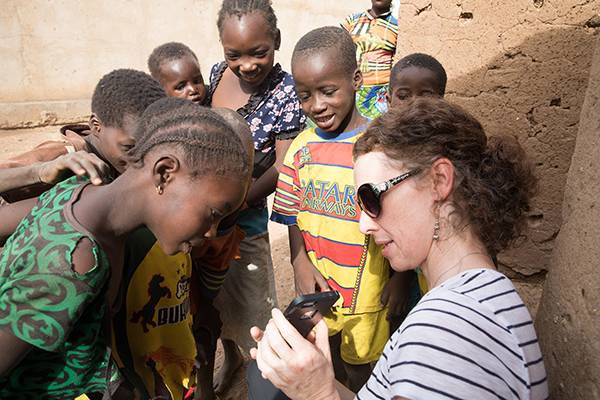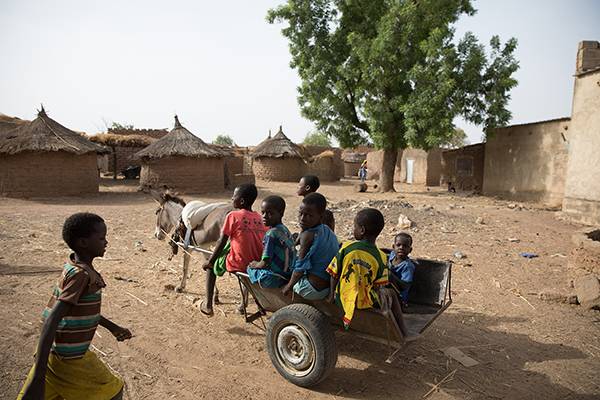You are here
World Meningitis Day 2018: Eliminating Epidemics of Meningococcal A Meningitis
Meningitis is a deadly infection of the membranes surrounding the brain and spinal cord. One particular bacteria, Neisseria meningitides, is the culprit of meningococcal meningitis and features different strains—A, C, W, X and Y. Meningococcal meningitis specifically targets the lining of the brain to cause a variety of health issues ranging from severe brain damage to loss of limbs, and even death. For many years, meningococcal meningitis has rendered a horrible health and economic burden in the nations located in the ‘meningitis belt’ in sub-Saharan Africa, spanning from Ethiopia in the east to Senegal in the west.
Cases of meningitis dropped significantly after the 2010 introduction of a vaccine, MenAfriVac™, which prevents the meningitis A strain. Public health experts continue to monitor the number of cases of meningitis and the types of strains causing epidemics in order to evaluate the effectiveness of the MenAfriVac™ vaccine. As a part of World Meningitis Day on April 24, I am pleased to highlight some of the incredible surveillance work being accomplished through CDC Foundation partnerships.
MenAfriNet
MenAfriNet is a five-year project funded by the Bill & Melinda Gates Foundation to institute a regional surveillance network to collect and analyze high quality, case-based meningitis surveillance data from sites across Africa’s meningitis belt. Now in its final year, the project is focused on using the data collected from partners in Burkina Faso, Mali, Niger, Togo and Chad to answer critical questions about the impact of MenAfriVac™ vaccine.
Since the 2010 introduction of MenAfriVac™, more than 280 million people in 21 African meningitis belt countries have been vaccinated. There is strong evidence that the vaccine is a historic breakthrough having nearly eliminated serogroup A meningococcal meningitis. The data collected from MenAfriNet countries is supporting the ongoing evaluation of the vaccine performance, monitoring disease trends of non-A meningitis serogroups, and helping inform future vaccine program decisions. At the same time, MenAfriNet is laying the foundation for strong and sustainable systems that will empower continued monitoring of meningitis and other diseases in the region after this program concludes.
Carriage Studies
Another important activity underway in Burkina Faso utilizes carriage studies to examine population immunity around meningococcal meningitis. Most infections result in a ‘period of carriage’ with only a minority resulting in disease. Carriage studies help understand the infection by studying the factors that affect progress to invasive disease and comparing clinical cases to transmission patterns. Carriage studies also help capture information about which strains are circulating and causing epidemics.
Last year, I had the opportunity to visit a village in the Kaya province of Burkina Faso to observe the carriage study. On an early Saturday morning, adults and children began arriving at the local primary school to have their throats swabbed and tested for various serogroups of meningitis. The test would determine if any of those being swabbed were carriers of meningitis and if so which strain.
Even though this village is over 30 minutes away from the nearest paved road, more than 100 participants between the ages of nine months to 36 years had been tested by mid-morning. Several of these participants came from the 23-member Wemba household. According to Sidiki Wemba, the 70-year-old head of household, none of his family had ever suffered from meningitis. However, he was well aware of the dangers of this disease and indicated that members of his family recognized the importance of the studies—having participated in them twice previously.
Burkina Faso has conducted over a dozen rounds of this carriage study, collecting data to analyze trends over time. At present, the results of the last round of the carriage study are being evaluated and will be released later this year. Researchers are excited about what they are learning from these studies.
While population health actions such as developing vaccines or implementing best prevention practices are essential in controlling or eliminating diseases, on-the-ground work to collect, analyze and interpret data is equally important to make sure that these implemented practices are effective.
We are grateful to the Bill & Melinda Gates Foundation and Gavi for their commitment and support of these surveillance activities as well as to the Centers for Disease Control and Prevention, the World Health Organization and our partners in Africa who are helping to advance efforts to eliminate all serogroups of meningococcal meningitis in the African meningitis belt. We are excited about the progress to date and look forward to the day when meningococcal meningitis is no longer a threat.


